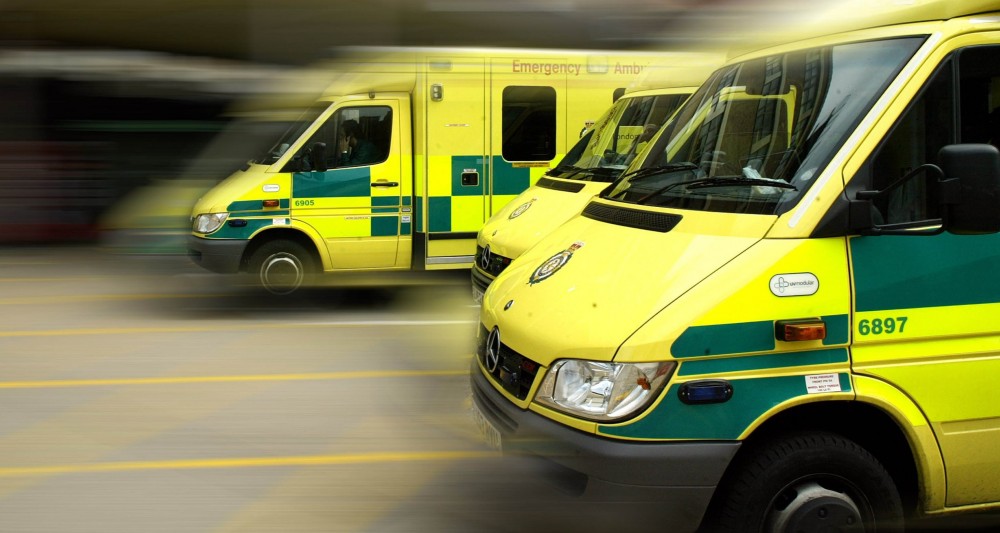‘National scandal’
Unite Scottish Ambulance Service (SAS) members working in the north division have moved one step closer to strike action after a consultative ballot in which 75 per cent voted to strike over working hours.
At a meeting yesterday (September 27), both SAS management and Unite reps have acknowledged that the working hours situation has become severe – the two parties have agreed to implement remedial steps and reconvene in a month to reassess before the union considers any further action.
Anger among ambulance staff, including paramedics, technicians and others, has reached boiling point after chronic overruns on shifts that are supposed to last 12 hours.
One SAS employee worked 36 hours, or three times his shift in Tomintoul in Moray, while another crew had been on a shift for 23 continuous hours in Lairg in the Highlands.
The Press and Journal reported the work shift overruns are happening against a backdrop of worrying staff shortages – it is understood that there about 20 vacancies in the North SAS division which covers the Highlands and Islands and Grampian areas.
Unite regional officer Tommy Campbell said the “resolution of members as demonstrated in the consultative ballot result is rock-solid”.
“Following a productive meeting with SAS management where our concerns were acknowledged, Unite has agreed to postpone any further steps until we see if the remedial steps being put in place do as we hope,” he explained. “Both parties will meet again in a month’s time but if there is no progress, based on the mandate we have been given, all options are now on the table.”
A survey last year of SAS ambulance workers carried out by Unite found that well over half – 54 per cent – suffer from stress. A further 94.5 per cent have said morale has worsened. 91.4 per cent said that staffing levels were insufficient and 90.4 per cent said they were suffering from fatigue.
In 2017, UNITElive highlighted similar concerns being voiced now from ambulance staff in the Highlands who reported long shifts leaving them dangerously exhausted.
In Dufftown last year, it had been reported that employees were regularly working long shifts and as a result had to take 790 hours off due to fatigue in the last six months alone – equivalent to 33 full days off.
Earlier this month, Campbell decried the “national scandal” of staff clocking up 36 hours in a single shift. Such long shifts, Unite has highlighted, increase staff stress and fatigue that jeopardise both their safety and the safety of their patients.
“There are many other examples of paramedics working dangerously long hours,” he said. “Unite members in their determination to serve the public have had their goodwill and dedication exploited.”
Northern Ireland pay gap
Meanwhile, paramedics in Northern Ireland are facing a widening pay gap between their pay and their colleagues in England, Wales and Scotland. While paramedics in England Wales and Scotland are all on band 6, those in Northern Ireland are on band 5, which amounts to a pay disparity of up to about ÂŁ5000 for doing the same job. This “yawning chasm”, Unite lead officer for health Kevin McAdam explained, is happening amid a 50 per cent surge in demand.
“Due to the absence of a locally-accountable Minister, proposals to upgrade paramedics from Band 5 to Band 6 on the pay scale remain shelved,” he added.
“Is it any wonder we are facing a recruitment crisis in the Northern Ireland healthcare system?” McAdam went on to say. “Unless this pay differential is addressed any other changes to the Northern Ireland Ambulance Service, even including plans to recruit an additional three hundred paramedics, are doomed to failure.
“The Department of Health tells us that they can’t make this or other decisions in the absence of a locally-accountable Minister and there is no certainty that even these proposals will go anywhere after the three-month public consultation ends. On its seventieth anniversary, our NHS faces being the collateral damage from the political failure of the Stormont parties”.
 Like
Like Follow
Follow

